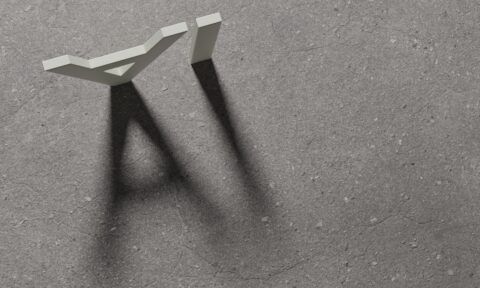Basic Naval Architecture
- Course provides conversion training for science/engineering graduates in ship design & shipbuilding practice. Person gains broad understanding of ship behavior under various conditions. Intended for engineers & research scientists needing to understand ship behavior at sea. Innovative course with balance of theory & practice. Engineers, scientists, ship management, oil companies, classification societies, ship builders benefit.
Overview
Naval Architecture Training is a short course designed for science and engineering graduates, experienced draughtsmen, engineers, and research scientists involved in ship design and ship systems. The course aims to provide a broad understanding of ship behavior under various conditions, covering topics such as ship components, hydrodynamics, stability, and ship design. The program includes lectures by industry experts and offers a balance of theory and practice. The course is suitable for professionals seeking to enhance their knowledge of ships and ship systems at sea.
Who should attend
Engineers, Scientists
Course Content
ABOUT THE COURSE
The primary objective of this short course is to provide conversion or refresher training for science and engineering graduates and experienced draughtsmen who hold active line responsibilities in the design of ships and ship systems and in shipbuilding practice. The course is designed in such a way that at the end of the lectures, the person will have a very broad understanding of the behaviour of ships under a variety of loading and operating conditions. The syllabus will include: basic definitions of ships, structural components of the hull girder, general arrangement, ships as functional blocks, hydrostatics & hydrodynamics. The course is intended for practising engineers and research scientists who need to understand the concepts behind the behaviour of ships & ships system at sea.
Who Should Attend
Location
Naval Architecture Training Aberdeen, Glasgow, Edinburgh, Inverness, Dunfermline and other sites throughout the UK including onsite closed company courses are available. Naval Architecture Training Saudi Arabia, Bahrain, Kuwait, Qatar, Abu Dhabi, Dubai, India, Ghana and Nigeria is also available.
Course Syllabus
Day 1
08.30 – 09.00 Delegate Registration
09.00 – 10.30 Lecture 1: Naming and locating parts of a ship, introduction to the general arrangement functional blocks of ship – Ian Winkle
10.30 – 10.45 Break
10.45 – 12.15 Lecture 2: Basic definitions, displacement, deadweight, deck load etc. loading conditions, stability and trim, stability book, role of marine agencies – Ian Winkle
12.15 – 13.30 Lunch
13.30 – 15.00 Lecture 3: Resistance, powering, fuel consumption, effects of appendages – David L Smith
15.00 – 15.30 Break
15.30 – 17.00 Lecture 4: Hydrodynamics related to wind, wave and current. Wave data, spectra, RAO’s – David L Smith
Day 2
09.00 – 10.30 Lecture 5: Ship capsizing, static stability, worked example on ships – Ian Winkle
10.30 – 10.45 Break
10.45 – 12.15 Lecture 6: Water tight integrity and damage stability, water tight doors and bulkheads – Ian Winkle
12.15 – 13.30 Lunch
13.30 – 15.00 Lecture 7: Ship motion as a result of wind, waves and currents – David L Smith
15.00 – 15.30 Break
15.30 – 17.00 Lecture 8: Ship Design – Dimensions, weight and layout – David L Smith
Additional Information
Ian E Winkle
Ian E Winkle BSc CEng, MRINA recently retired as a Senior Lecturer in the Dept of Naval Architecture & Marine Engineering, Universities of Glasgow & Strathclyde after 26 years involved in Naval Architecture, Ship Design and Ship Production. Before joining the Universities of Glasgow & Strathclyde Mr Winkle worked with Vicker’s Ltd Shipbuilding Group at their Walker Naval Yard and St. Albans Ship Model Experiment Tank before joining Lloyd’s Register of Shipping for a year as a Travelling Scholar. He then spent nearly 4 years working as a Research Officer in the Production Division of the British Ship Research Association, developing new fabrication techniques, before becoming Principal Lecturer in the Dept of Maritime Studies at the Northern Ireland Polytechnic. His areas of research interest include Stability of Damaged Ro-Ro Vessels – most notably the development of the ‘Glasgow Concept’ and the Fabrication of Steel and GRP Ship Structures using Toughened Structural Adhesives, much of which has been undertaken as principal investigator of a range of EPSRC projects.
David L. Smith
David L. Smith BSc. MSc. MRINA, FIESS, AMSNAME, C.Eng. Recently retired as a lecturer in the Department of Naval Architecture & Marine Engineering, The University of Strathclyde. Prior to joining the University in 1990, Mr. Smith worked in Production Planning in Lithgows Ltd. for 2 years before joining Yarrow Shipbuilders Ltd in 1974 to work in Ship Design. He was Chief Design Engineer with responsibility for various aspects of the Type 23 Frigate, particularly its structure for nine of these years spent at Yarrows. His recent teaching includes; Introduction to Naval Architecture, Marine Manufacturing, Naval Architecture Design Projects, Engineering Applications for Naval Architects, Marine Design, Ship Design Project, Shipbuilding Technology, Fourth Year Project supervision, M.Sc. Group Project Supervision, M.Sc. Individual Project Supervision. His previous teaching included; Small Craft Systems and Manufacture, Design/Small Craft Design Case Studies and Marine Structures. His other activities include being Chief Examiner for The Engineering Council Examination Paper D212, ‘Design & Operation of Marine Vehicles’, a member of the Professional Affairs Committee of the Royal Institution of Naval Architects since 2006 and he was Chairman of the Scottish Branch of the Royal Institution of Naval Architects from 2006 to 2008.



